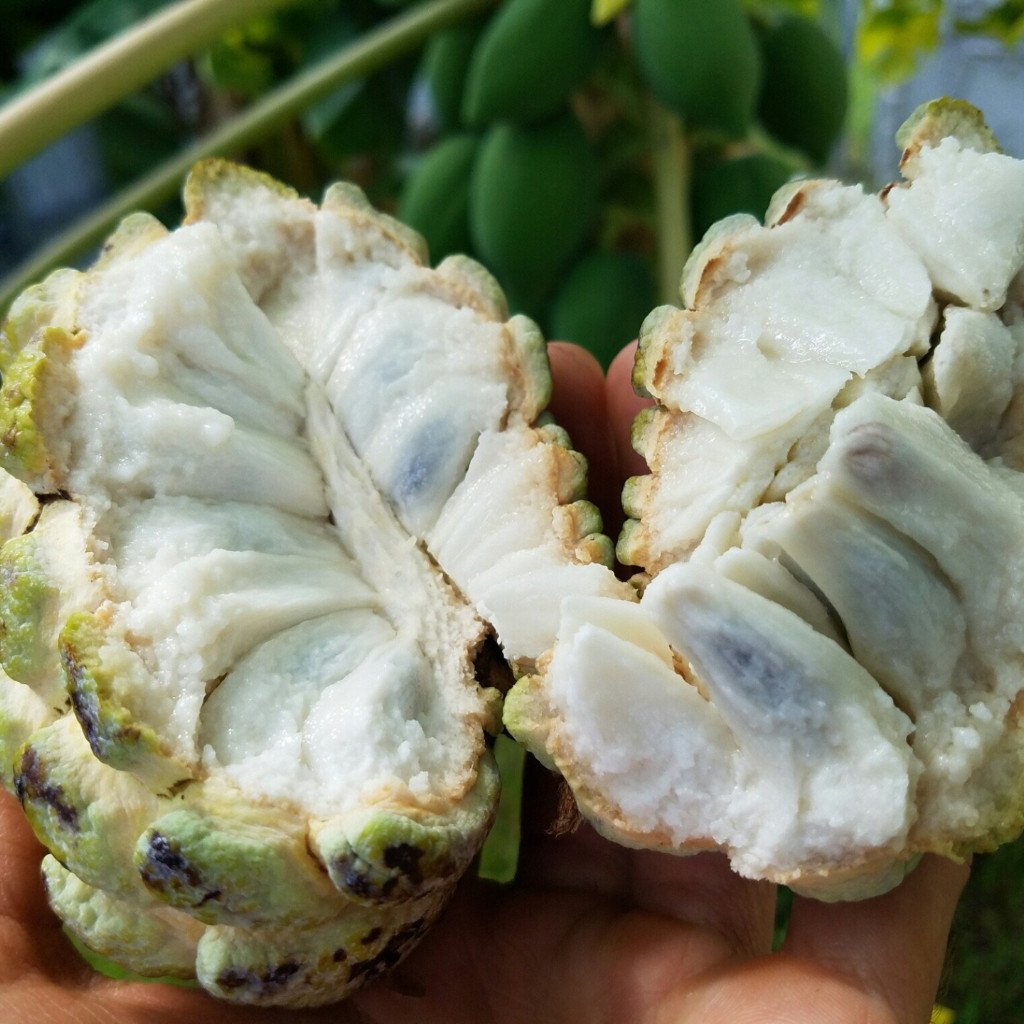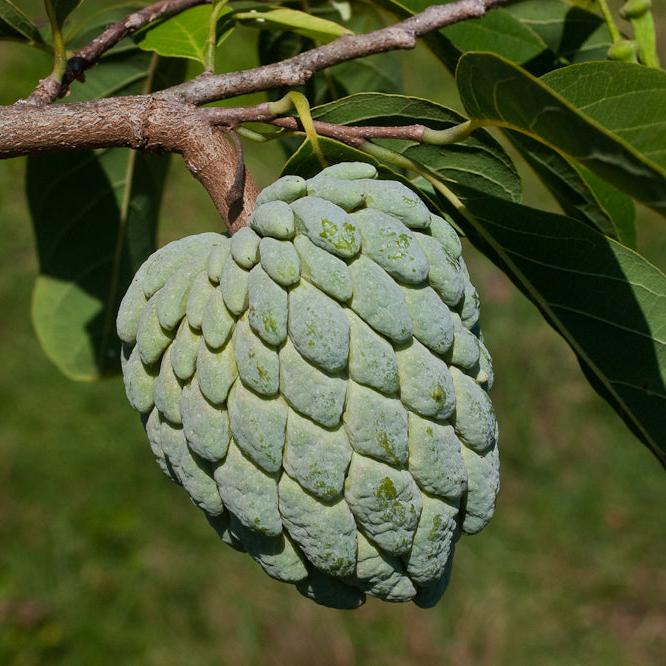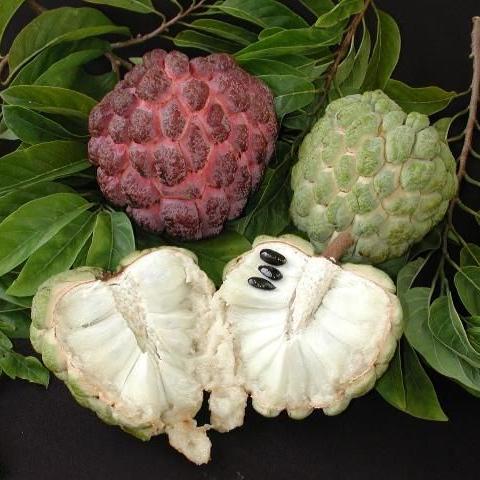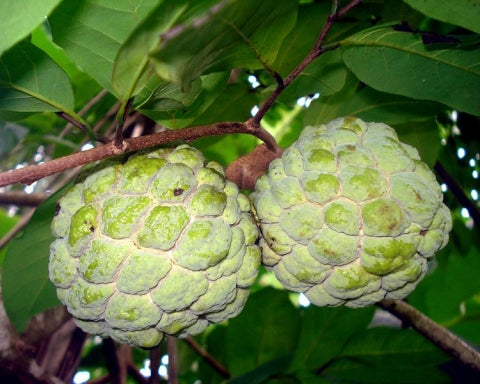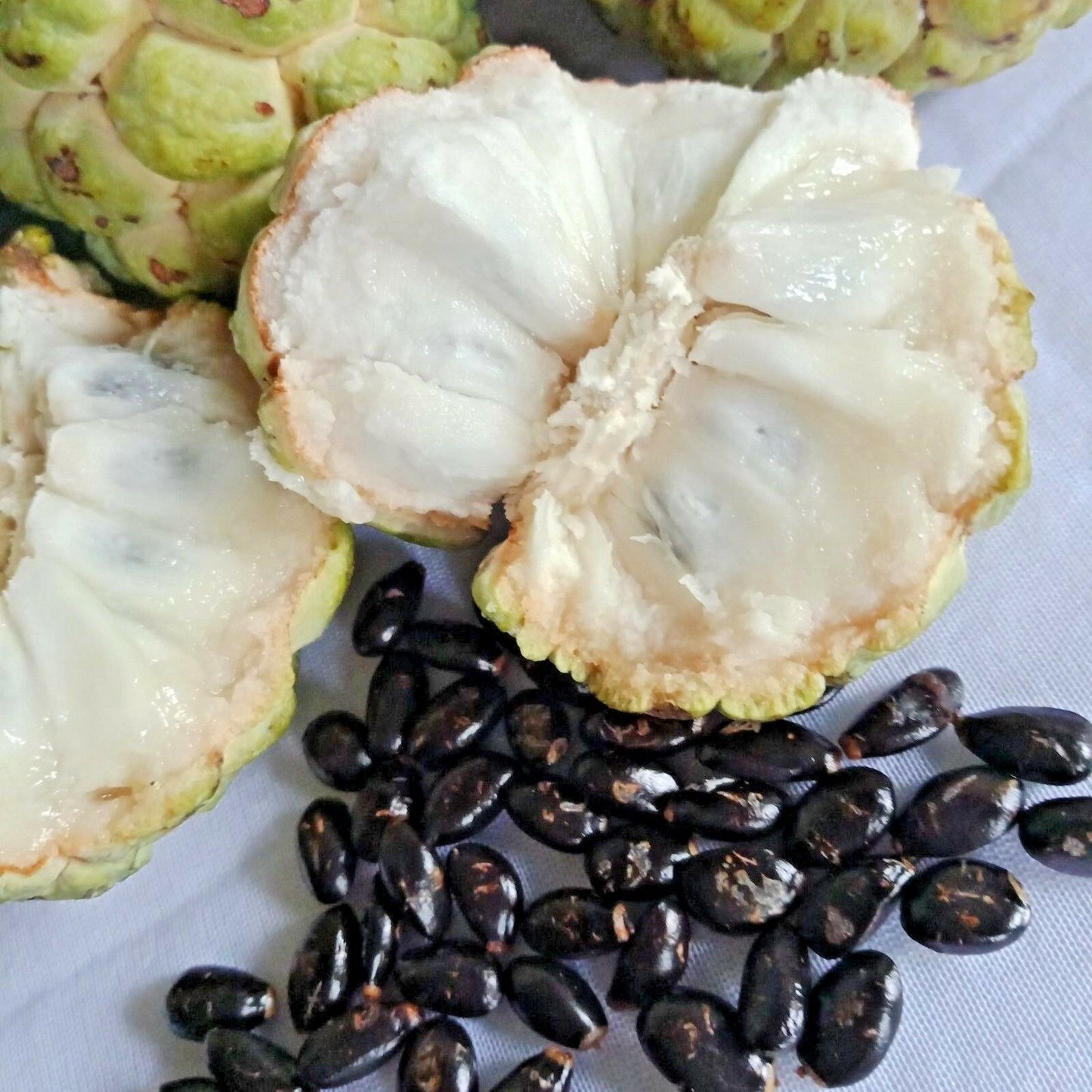Sugar-Apple Fruit Plant (Annona Squamosa): A Sweet Addition to Your Garden
At Veliyath Gardens, we proudly present the Sugar-Apple tree (Annona squamosa), also known by various names like Custard Apple, Sweetsop, and Nona. Native to the tropical Americas and West Indies, this beloved fruit plant has found its way into gardens worldwide. Whether you're cultivating it for its delightful fruit, its cultural value, or its environmental contributions, the Sugar-Apple tree promises to be an enriching addition to any garden.
Botanical and Common Names
-
Botanical Name: Annona squamosa
-
Common Names: Sugar Apple, Custard Apple, Sweetsop, Buah Nona, Seri Kaya, Anona, Nona, Bullock's Heart.
A Sweet Treat from Nature
The Sugar-Apple tree is a small, well-branched tree or shrub, known for producing sweet, creamy fruits that are beloved around the world. Its distinctive, lumpy green skin encases soft, white flesh filled with black seeds. The flavor is sweet and creamy, reminiscent of a tropical custard, making it a popular treat in many cultures. Despite its small size, this tree has made a big impact globally, particularly in regions like India, where it is widely grown as a commercial fruit tree. The exact origin of the Sugar-Apple is not known, but it has been enjoyed for centuries in the tropical Americas and beyond.
Nutritional Content and Health Benefits
The Sugar-Apple is not only delicious but also a powerhouse of nutrition, making it an excellent addition to your diet. Its flesh is rich in Vitamin C, a vital antioxidant that supports immune health. The fruit is also known for its high caloric and sugar content, providing an energy boost, particularly during the summer months when its cooling properties are most appreciated.
-
Rich in Vitamin C: Supports immune function, improves skin health, and provides antioxidant benefits to help combat oxidative stress.
-
High Caloric and Sugar Content: Provides a natural energy boost with 58% of its dry mass coming from sugar, making it a perfect snack for a quick pick-me-up.
In addition to being a tasty treat, the Sugar-Apple fruit can help enhance the function of white blood cells, improve skin defenses, and aid the body in fighting infections, making it a valuable fruit for overall wellness.
Medicinal Uses and Cultural Significance
The Sugar-Apple tree holds significant cultural and medicinal value, particularly in tropical and subtropical regions. In traditional medicine, various parts of the plant, including the leaves, seeds, and roots, are used for their purported health benefits. The fruit itself is commonly used to soothe digestive issues and is considered helpful in alleviating nausea and diarrhea. Its high vitamin C content also makes it a useful remedy for colds and infections.
Culturally, the Sugar-Apple has long been a part of many local diets and festivities, especially in tropical countries. Its sweet flavor and creamy texture have made it a popular ingredient in desserts and beverages. The tree’s beauty and productivity also contribute to the cultural fabric of the regions where it is grown.
Environmental Benefits and Sustainability
The Sugar-Apple tree thrives in tropical and subtropical climates, making it an excellent choice for gardeners looking to grow a fruit that contributes to environmental sustainability. It supports local ecosystems by attracting pollinators such as bees and butterflies. Its broad, dense canopy offers shelter to smaller wildlife, and its leaves contribute organic matter to the soil, enriching its fertility.
The tree’s resilience to heat and humidity makes it a low-maintenance plant, ideal for gardeners in tropical and warm temperate climates. By growing the Sugar-Apple tree, you not only enjoy its sweet fruits but also play a part in supporting local biodiversity and environmental health.
Cultivation Details and Maintenance
The Sugar-Apple tree is a relatively easy plant to care for, with moderate maintenance requirements. It is well-suited for home gardens or commercial fruit plantations, offering a rewarding experience for gardeners and fruit enthusiasts alike. Here are some important details about its cultivation:
-
Bloom Time/Fruiting: The Sugar-Apple typically begins to bloom and fruit within 2 to 3 years of planting, making it a quick-growing option for gardeners.
-
Maintenance: The tree requires moderate care, including regular watering, occasional pruning, and protection from extreme cold or frost.
Conclusion: A Sweet Addition to Your Garden
The Sugar-Apple tree is a tropical gem that brings more than just a sweet treat to your garden. With its nutritious fruit, rich cultural significance, medicinal uses, and environmental benefits, the Sugar-Apple is a versatile and rewarding addition to any garden. Whether you are growing it for its delicious fruit, its contribution to biodiversity, or its role in supporting holistic health, the Sugar-Apple tree offers a range of benefits that make it well worth cultivating.
At Veliyath Gardens, we encourage you to embrace the sweetness of the Sugar-Apple and invite this incredible fruit plant into your garden. With its easy care and fast fruiting, it is an ideal choice for anyone looking to enhance their garden with a unique and beneficial tropical tree.
Maintenance Level: Moderate
Blooming & Fruiting Time: 2 to 3 years
Ideal for: Tropical and warm temperate climates
A Delicious, Nutritious, and Culturally Significant Tree for Your Garden – Add a Sugar-Apple Today!
